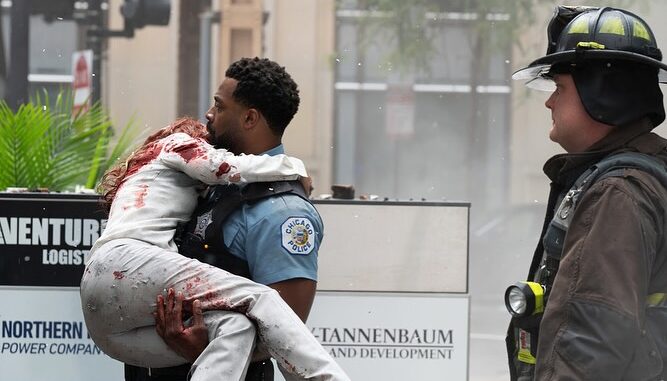
After more than a decade on screen, Chicago P.D. just delivered one of its boldest moves yet — rewriting the very foundation of Hank Voight’s story. In a stunning twist that reframes his villainous debut on Chicago Fire, Season 13 of Chicago P.D. challenges everything fans thought they knew about the franchise’s most complex antihero.
Longtime viewers will remember Voight’s introduction on Chicago Fire as the corrupt sergeant who tried to strong-arm Matt Casey (Jesse Spencer) and nearly derailed his career. He was brutal, intimidating, and unquestionably dirty — the kind of cop fans were never supposed to root for. But over time, Chicago P.D. transformed him into something far more layered: a man driven by pain, loyalty, and a warped sense of justice. Now, the latest episode dares to ask the question — what if that original version of Voight wasn’t the whole truth?
In Episode 4, titled “Ghost Lines,” the show drops a revelation that could alter the entire One Chicago timeline. When a decades-old investigation resurfaces, Voight is forced to confront evidence suggesting that his initial acts of corruption may have been part of a deep undercover mission — one buried so far down the chain of command that even his closest allies never knew. The discovery shakes both the Intelligence Unit and the audience, recasting Voight’s “villainy” as part of a larger, morally gray operation.
This twist doesn’t absolve him of every sin — far from it. What it does, however, is add new dimension to a man already teetering between justice and vengeance. For years, fans have debated whether Voight was a hero or a monster. This new information complicates that question even more, turning what was once a clear-cut origin story into a psychological maze of intention and consequence.
Jason Beghe delivers one of his most introspective performances to date, blending guilt, anger, and quiet defiance in a way that keeps viewers glued to every expression. His Voight isn’t asking for forgiveness — he’s demanding understanding. And in doing so, the show cleverly challenges audiences to reconsider what redemption really looks like in a world built on moral compromise.
The ripple effect of this revelation extends far beyond one episode. It recontextualizes Voight’s entire relationship with the One Chicago universe — especially his early clashes with Firehouse 51. If his “dirty cop” days were in service of something greater, how does that change his legacy? And what does it mean for his allies who’ve followed him through years of questionable decisions?
Chicago P.D. has always thrived on tension — between law and conscience, order and chaos. But by rewriting its most infamous origin story, it’s doing something even bolder: evolving its mythology in real time. The show isn’t just telling stories about Chicago anymore; it’s rewriting its history.
And for fans who’ve followed Voight’s journey from villain to reluctant hero, this twist isn’t just shocking — it’s revolutionary. The monster from Chicago Fire may never fully disappear, but for the first time, we’re seeing who he was really fighting to become.
